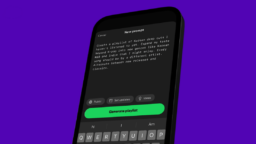Spotify’s decision to classify its Premium subscription tiers as a bundle (i.e., music streaming plus audiobooks) has upset many in the music industry, as it means lower mechanical royalty payouts to publishers and songwriters in the US.
New estimates from one large player in the music publishing space suggest the financial hit certainly won’t be welcomed – but won’t be exactly. business-wrecking, either.
Indie music company Reservoir Media, which trades on the Nasdaq, estimated on Wednesday (July 31) that Spotify’s lower mechanical royalties will cost the company USD $1.2 million–$1.5 million in lost annual revenue this year.
Based on Reservoir’s forecast of $148 million–$152 million in revenue for the current fiscal year (the company’s fiscal 2025, which ends on March 31, 2025), that would amount to approximately 0.8% to 1% of annual revenue.
The projected hit from Spotify’s bundles in FY 2025 would have amounted to 1.2% to 1.6% of Reservoir’s publishing revenues in fiscal 2024, which came in at $96.2 million. (Reservoir generates revenues from both recorded music and publishing, but Spotify’s mechanical royalties move will only affect the publishing side of the business. Reservoir didn’t break out publishing revenue in its guidance for FY 2025.)
That small number could still make a significant difference for a company like Reservoir, which reported operating income of $24.6 million for fiscal 2024.

On Reservoir’s Q1 FY 2025 earnings call Wednesday (July 31), the firm’s CFO, Jim Heindlmeyer, stressed that RSVR is “very opposed” to Spotify’s bundling move. He added that Reservoir had already built the lower mechanical royalty payouts into forecasts for the year.
Spotify told The Mechanical Licensing Collective (The MLC) in March that it now considers its Premium (i.e. paid) subscription tiers to be bundled offerings, as they have included 15 hours of audiobook time per month since last November.
That means a financial hit for music publishers and songwriters in the US. Early estimates suggested that Spotify’s move would deprive rights holders of some $150 million in income annually.
A recent regulatory filing from Spotify estimated the streaming service would have to pay out some USD $38 million in additional royalties for Q2 2024 (plus additional penalties) if it were to lose the suit. That implies that losses from Spotify’s move would be close to that $150 million estimate.
Under the US Copyright Royalty Board’s Phonorecords IV, rules, digital service providers (DSPs) can pay out lower mechanical royalties from a bundled subscription plan than from a standalone music plan, provided that the service bundled with music has “more than token value.”
That condition is at the heart of a lawsuit launched by The MLC against Spotify, in which the royalty collecting organization argues that the audiobooks addition amounts only to token value.
“We can’t really predict where this litigation will go and how long it will take, but we will fight the good fight, and we will advocate for our songwriters.”
Golnar Khosrowshahi, Reservoir
In a recent motion to dismiss the suit, Spotify rejected that argument, arguing that audiobooks are a major business not just for Spotify but for various other DSPs. (The MLC retorted that these types of arguments are inappropriate for a pre-trial motion to dismiss, and urged the court to continue with the case.)
“We can’t really predict where this litigation will go and how long it will take, but we will fight the good fight, and we will advocate for our songwriters,” Reservoir CEO Golnar Khosrowshahi said on the earnings call.
“But as Jim said, our forecasts and our budgets reflect the reality that we’re living today.”
Khosrowshahi went on to mention a move by Spotify that could potentially offset the losses from the bundling move: The streaming service’s plan to introduce a “super-Premium” subscription tier, which would offer users additional functionality and access to music and artists, and which Spotify CEO Daniel Ek hinted could cost about $5 more per month than then current Premium tiers.
Spotify’s estimates are “pretty significant as far as how many people will convert to that product,” Khosrowshahi noted.Music Business Worldwide





